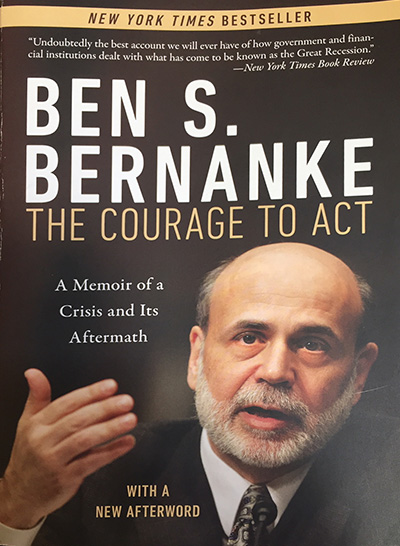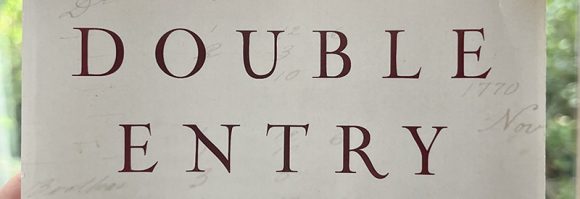
Here in the midst of the Coronavirus Pandemic and attached economic crisis, it seemed a good time to read Ben Bernanke’s memoir of the Panic of 2007-2008.
Like most of the economics history books I’ve read and posted about, the stories are interesting but the writing quite dry. Too many words devoted to unnecessary details. But ideas that are well worth remembering and learning from.
What we have to remember is that Bernanke’s research and PhD thesis was on the Great Depression, and what the Fed, other central banks, and treasuries did wrong. He was the most qualified person to be Chair of the Fed in 2007 when the mortgage-induced panic set in.
We also need to remember that Bernanke, Geitner, and Paulson had to invent new tools to stave off a second depression. Most of the book describes how those decisions were made, who came up with the idea, who was in favor, who was against, and why.
This is one of those storybooks where you know the ending. The challenge is in trying to imagine sitting in the room without the benefit of a decade of hindsight. 2007, 2008, and 2009 were unprecedented times for the financial markets, with Bernanke and team working most every weekend to deal with the latest issue, often the latest too-big-to-fail organization that was about to fail.
My biggest learning from the book is how the Fed tried to save everyone. They put together the deals that saved Bear Stearns, Wachovia, and AIG. I had thought they chose to let Lehman Brothers fail. They didn’t. They tried to save them too, but no buyer made an offer.
My other learning was the limits of the Fed’s powers. Yes, they can create as many dollars as they need. But they can (almost) only deploy those dollars in the form of loans. They can’t just buy a failing bank. The exception is that they can buy Treasuries and other highly rated debt, which is the big tool Chair Powell is using here in 2020.
Most of the tools Powell and team are using come directly from the efforts set down by Bernanke and team during the last financial crisis. Some of the details are different but the style and substance are similar.
Here in 2020, with only foresight into the rest of the decade, I suspect the Fed will have to invent some new tools, as I’m doubtful we’ve seen the worst of the latest economic crisis.
I’ll read and post about Powell’s memoir in 2030.














